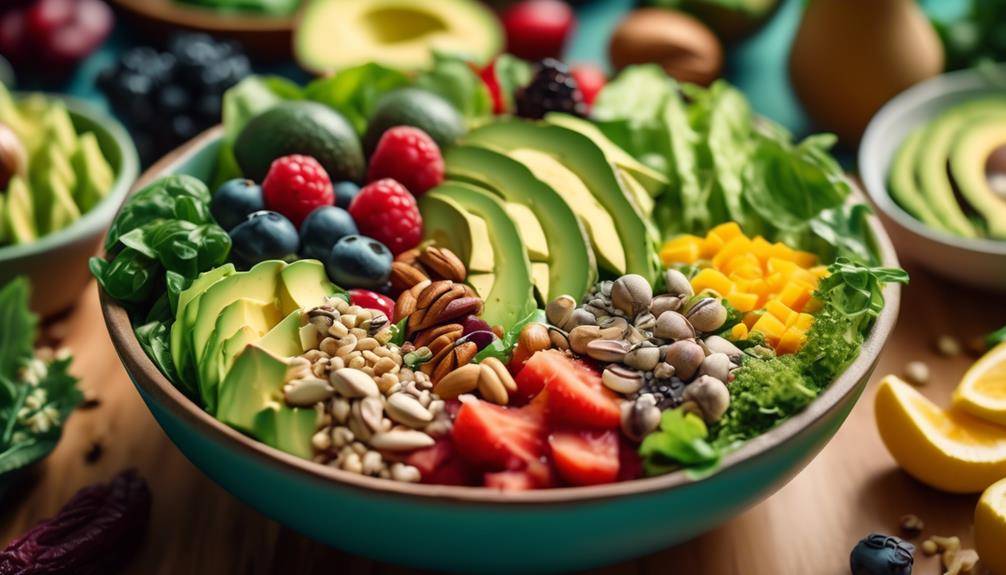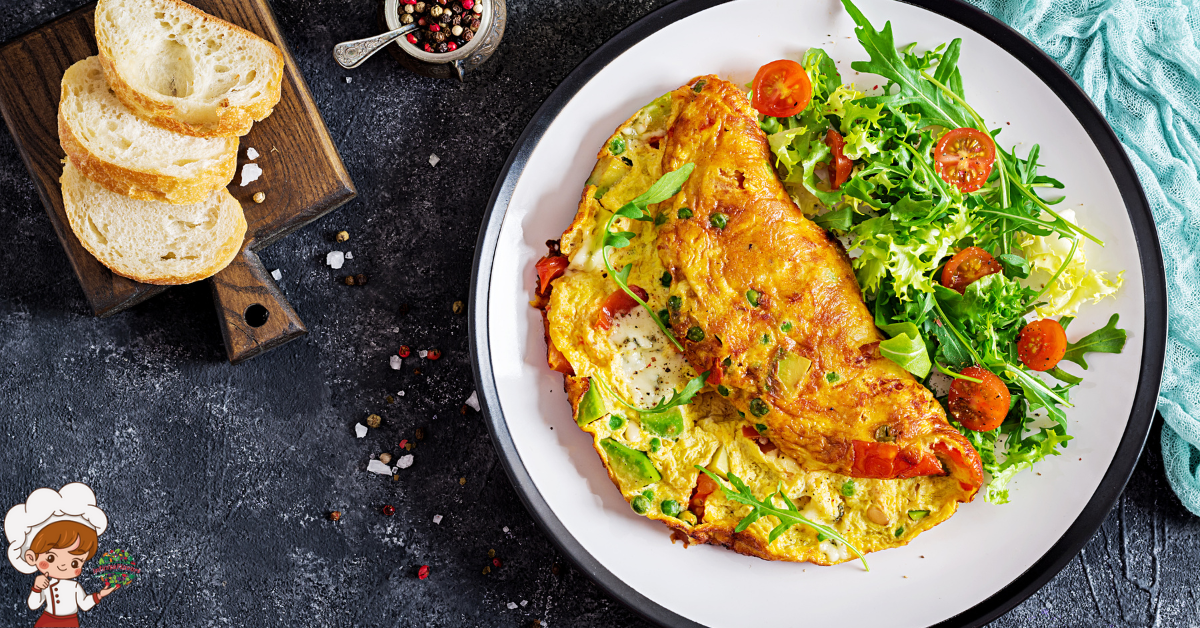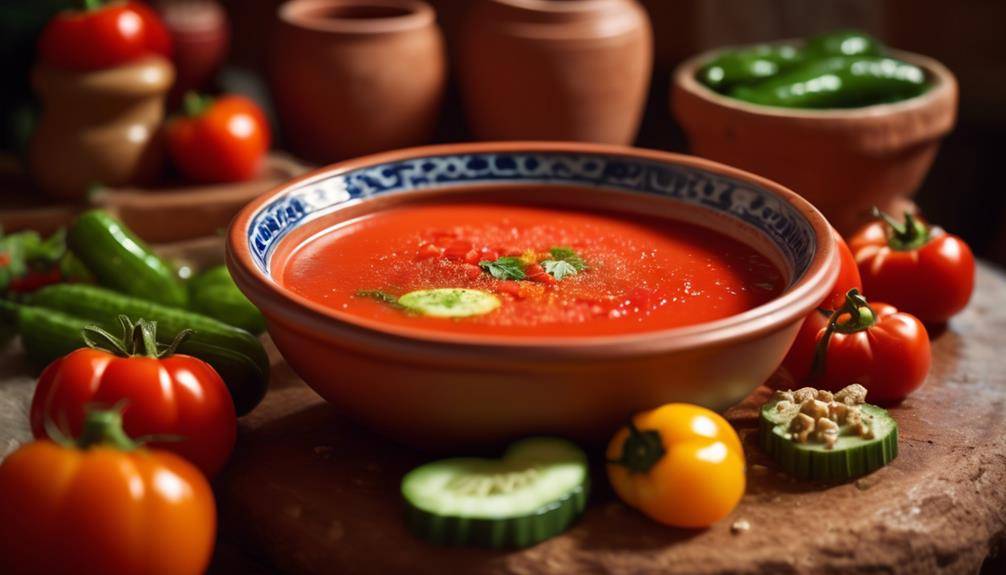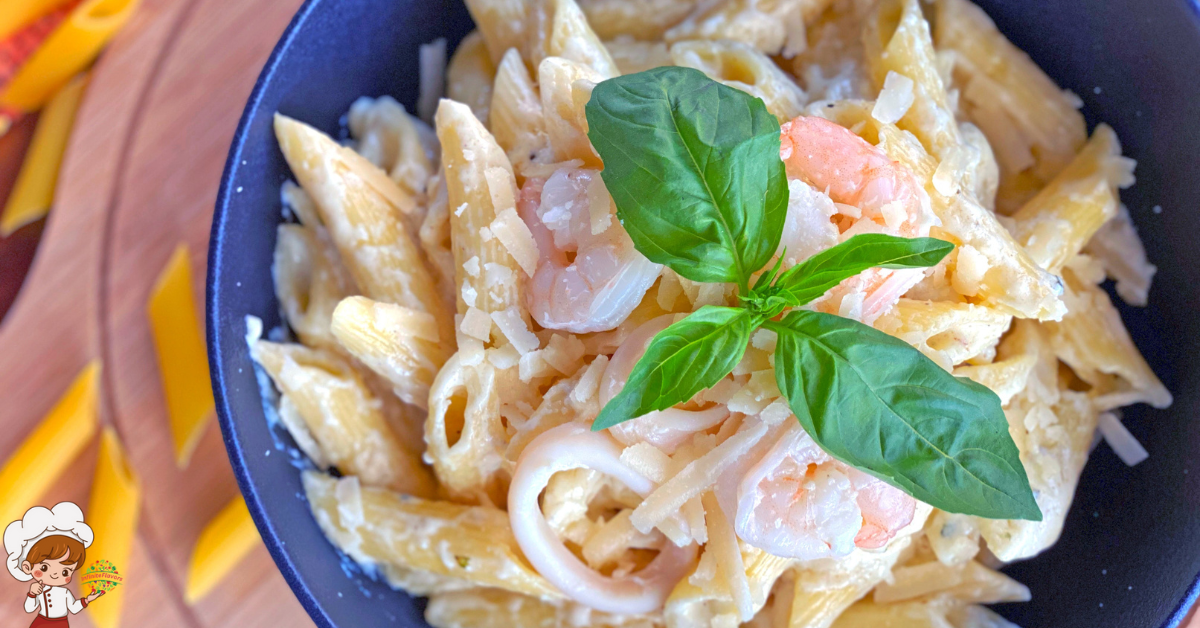The Best Nutrient Dense Foods for Vegans

Are you tired of feeling like you’re missing out on essential nutrients just because you follow a vegan diet? Well, fret no more, because we’ve got you covered! In this discussion, we’ll explore a variety of The Best Nutrient Dense Foods for Vegans that are perfect for vegans like yourself. From leafy greens that pack a powerful punch to protein-packed legumes and nutty seeds, we’ll uncover the secrets to maximizing your nutritional intake. But that’s not all – we’ll also dive into the world of supercharged fruits and whole grains, revealing why they are a vegan’s best friend. So, hang tight and get ready to discover the key to optimal health through plant-based nutrition.
Leafy Greens: the Powerhouse of Nutrients
Are you looking for a nutrient-packed addition to your vegan diet? Look no further than leafy greens – the ultimate powerhouse of nutrients. Incorporating leafy greens into your meals offers numerous benefits for a vegan diet. These nutrient-dense foods are rich in vitamins, minerals, and antioxidants that support overall health and well-being.
One of the key benefits of including leafy greens in your vegan diet is their high nutrient content. They are an excellent source of vitamins A, C, and K, as well as folate and iron. These nutrients are essential for maintaining a healthy immune system, promoting proper blood clotting, and supporting the formation of red blood cells.
Leafy greens also provide a good amount of dietary fiber, which aids in digestion and helps regulate blood sugar levels. This can be particularly beneficial for vegans, as a plant-based diet can sometimes be low in fiber. Additionally, the antioxidants found in leafy greens help protect against oxidative stress and inflammation, reducing the risk of chronic diseases such as heart disease and certain types of cancer.
Incorporating more leafy greens into your meals is easy and can be done in various ways. You can add them to smoothies for a nutrient boost, sauté them with garlic and olive oil as a side dish, or use them as a base for salads. You can also replace traditional lettuce with leafy greens in sandwiches and wraps, or even blend them into pesto sauce for a flavorful twist.
Protein-Packed Legumes for Vegans
Looking to add a protein punch to your vegan diet? Look no further than protein-packed legumes. Legumes, such as beans, lentils, and chickpeas, are not only rich in protein but also in fiber, vitamins, and minerals. Incorporating legumes into your meals can help meet your protein needs while providing essential nutrients for overall health.
Here are three high protein soy alternatives that you can include in your diet:
- Tofu: Made from soybeans, tofu is a versatile and nutritious option for vegans. It is an excellent source of protein, containing all essential amino acids. Tofu can be used in a variety of dishes, such as stir-fries, salads, and even desserts. Get creative with tofu by marinating it in flavorful sauces or using it as a substitute for eggs in baking recipes.
- Tempeh: Another soy-based protein option, tempeh is made by fermenting soybeans and forming them into a firm patty. It has a nutty flavor and a firm texture, making it ideal for grilling, sautéing, or crumbling into dishes like stir-fries or chili. Tempeh is not only high in protein but also a good source of probiotics and fiber.
- Edamame: These young green soybeans are a delicious and nutritious snack. They are packed with protein, fiber, and essential nutrients like folate and vitamin K. Edamame can be enjoyed boiled or steamed and can be added to salads, stir-fries, or even blended into dips like hummus.
Incorporating these high protein soy alternatives into your vegan diet can help you meet your protein needs while adding variety and flavor to your meals. Get creative with tofu recipes, experiment with tempeh, and enjoy the wholesome goodness of edamame.
Nutty and Nutritious Seeds for Vegan Diets
Seeds are a nutty and nutritious addition to vegan diets, providing a wealth of essential nutrients and adding a delicious crunch to meals. Not only are seeds a great source of healthy fats, fiber, and protein, but they also offer a variety of vitamins and minerals. Incorporating seeds into your vegan diet can be done in various ways, including as snacks or as ingredients in baking recipes.
When it comes to seed-based snacks for vegans, options abound. You can enjoy a handful of pumpkin seeds, which are rich in magnesium, iron, and zinc. These seeds can be roasted and seasoned with your favorite spices for added flavor. Another tasty snack idea is sesame seeds, which are packed with calcium and iron. You can sprinkle them on top of salads or use them in homemade granola bars for an extra nutritional boost.
Incorporating seeds into vegan baking recipes is also a great way to enhance both the flavor and nutritional profile of your treats. Chia seeds, for example, are an excellent egg substitute due to their ability to absorb liquid and create a gel-like consistency. They are also a good source of omega-3 fatty acids and fiber. Flaxseeds are another popular choice, as they can be ground and used as a replacement for eggs or as a binder in recipes. They are high in omega-3 fatty acids and lignans, which have antioxidant properties.
Supercharged Fruits for Optimal Health
What fruits can you incorporate into your vegan diet to supercharge your health?
- Nutritional benefits of berries for vegans:
- Berries, such as strawberries, blueberries, and raspberries, are not only delicious but also packed with essential nutrients. They are rich in vitamins, minerals, and antioxidants, making them a great addition to a vegan diet. Berries are particularly high in vitamin C, which helps boost the immune system and supports collagen production. They also contain high levels of fiber, which promotes healthy digestion and helps maintain a feeling of fullness. Additionally, the antioxidants found in berries help protect the body against oxidative stress and inflammation.
- Incorporating tropical fruits into a vegan diet:
- Tropical fruits, like pineapple, mango, and papaya, can add a burst of flavor and provide numerous health benefits to a vegan diet. Pineapple, for example, is a great source of vitamin C and manganese, which supports bone health and aids in collagen production. Mangoes are rich in vitamin A and potassium, which are essential for healthy vision and maintaining proper heart function. Papaya contains an enzyme called papain, which aids in digestion and helps break down proteins. These tropical fruits not only taste great but also offer a wide range of nutrients that can contribute to optimal health.
Incorporating a variety of fruits, such as berries and tropical fruits, into your vegan diet can provide an array of essential nutrients. The nutritional benefits of berries, including their high vitamin C content and antioxidant properties, make them a valuable addition to any vegan diet. Similarly, tropical fruits like pineapple, mango, and papaya offer unique health benefits, such as supporting bone health, aiding digestion, and providing essential vitamins and minerals. So why not supercharge your health by incorporating these supercharged fruits into your vegan diet?
Whole Grains: a Vegan’s Best Friend
Whole grains are an essential component of a vegan diet, providing a plethora of nutrients and health benefits. Incorporating whole grains into your vegan diet can enhance your overall health and well-being. Whole grains are packed with fiber, vitamins, minerals, and antioxidants that are vital for optimal health.
One of the key benefits of incorporating whole grains into a vegan diet is their high fiber content. Fiber aids in digestion, promotes satiety, and helps regulate blood sugar levels. It also supports a healthy gut microbiome, which is essential for nutrient absorption and immune function.
Whole grains are also rich in vitamins and minerals, such as B vitamins, iron, magnesium, and zinc. These nutrients play crucial roles in energy production, brain function, and immune system support. By including whole grains in your vegan diet, you can ensure you are meeting your daily nutrient requirements.
In addition to their nutritional benefits, whole grains can be the foundation for delicious vegan meals. You can make hearty grain bowls with quinoa, brown rice, or farro, topped with an array of colorful vegetables, legumes, and a flavorful dressing. Whole grain pasta or couscous can be mixed with sautéed vegetables and a homemade tomato sauce for a nourishing and satisfying meal.
For breakfast, try overnight oats made with rolled oats, almond milk, and your favorite toppings like fruits, nuts, and seeds. You can also enjoy a slice of whole grain bread with avocado or almond butter as a quick and nutritious snack.
Incorporating whole grains into your vegan diet not only provides essential nutrients but also offers a variety of delicious and versatile meal options. Make sure to experiment with different whole grains and recipes to keep your vegan diet exciting and enjoyable.
Nutrient Dense Foods for Vegans; Frequently Asked Questions
Can Vegan Diets Provide All the Necessary Nutrients for Optimal Health?
Yes, vegan diets can provide all the necessary nutrients for optimal health. Fortified foods play a crucial role in meeting nutrient needs, and studies show that vegan diets can have positive impacts on athletic performance.
What Are Some Alternative Sources of Protein for Vegans Apart From Legumes?
You can find vegan protein sources that are not legumes. Consider incorporating foods like tofu, tempeh, seitan, and quinoa into your diet. These alternatives can provide the necessary protein for optimal health.
How Can I Incorporate Nutrient-Dense Seeds Into My Vegan Diet?
To incorporate nutrient-dense seeds into your vegan diet, try adding them to smoothies, oatmeal, or salads. These seeds, such as chia, flax, and hemp, are packed with essential vitamins, minerals, and omega-3 fatty acids, making them a valuable addition to a plant-based diet.
Are There Any Specific Fruits That Are Particularly Beneficial for Overall Health in a Vegan Diet?
Incorporating specific fruits into your vegan diet can provide numerous benefits for overall health. Berries, for example, are packed with antioxidants and fiber, while leafy greens offer essential nutrients when incorporated into your meals.
What Are Some Examples of Whole Grains That Are Beneficial for Vegans and How Can They Be Included in Meals?
Incorporating whole grains into your vegan diet can provide essential nutrients. Examples include quinoa, brown rice, and oats. You can enjoy them in meals like grain bowls, stir-fries, or as a side dish.
Conclusion
In conclusion, incorporating nutrient-dense foods into a vegan diet is essential for optimal health. Leafy greens, protein-packed legumes, nutty seeds, supercharged fruits, and whole grains are all excellent choices. These foods provide a wide range of essential nutrients, vitamins, and minerals necessary for a well-balanced diet. By prioritizing these nutrient-rich options, vegans can ensure they are meeting their nutritional needs and enjoying a vibrant, healthy lifestyle.








